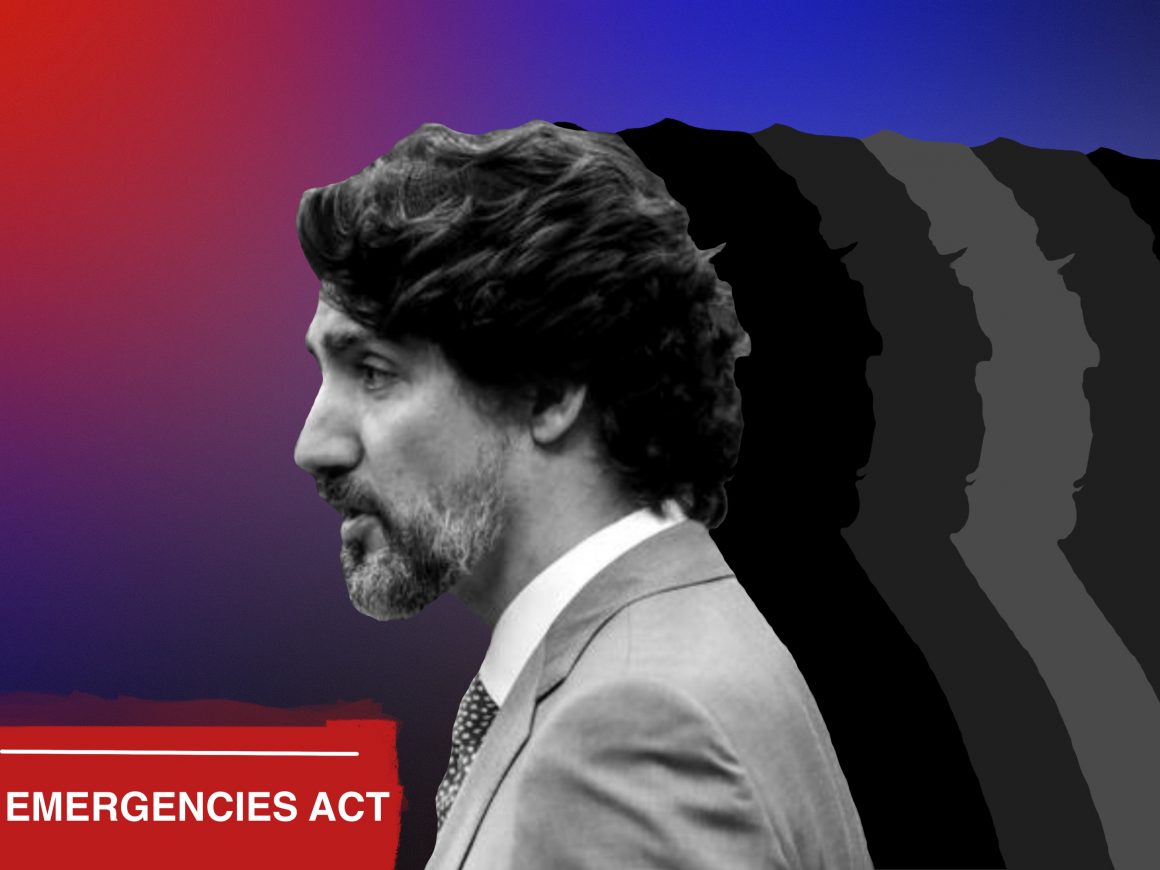
The Emergencies Act has never been necessary
By Christian Lowry, March 10 2022—
The War Measures Act, one of the most controversial pieces of legislation in Canadian history, was deceptively named when it was passed in 1914. That fact has not diminished since it was replaced by the Emergencies Act in 1988. Every implementation has lacked a wartime background or been directed against foes irrelevant to said war efforts.
During the First and Second World Wars, the provisions of the Act were used mainly to intern Ukrainian, German, Italian and Japanese Canadian civilians, collectively punishing them for the deeds of their ancestral countries, as well as stripping them of their other civil rights. More than half the invocations of the War Measures Act or Emergencies Act have now occurred in peacetime, in 1970 and 2022.
The most infamous — and probably the most unjustified — instance lasted from October 1970 to April 1971. After the kidnapping of British diplomat James Cross and Québec Vice-Premier Pierre Laporte by the so-called Front de libération du Québec (FLQ), the Canadian government invoked the War Measures Act again, deploying 12,000 soldiers to the Greater Montréal region to bolster the 10,000 police already there.
Active from 1963 through 1970, the FLQ never formed a single, centralized organization, had no coherent leadership, no agreed-upon political platform, and never had more than 100 cumulative members, 23 of whom were in jail by October 1970.
These members were further spread across 15 different cells, most of which had been broken up by police action before 1970. The War Measures Act was hardly necessary to do what the police were already doing successfully in the years before the October Crisis. Ironically, the FLQ’s infamous killing of hostage Pierre Laporte took place a day after the Act came into force, in what the government’s Duchaine Report later determined to be an unintentional incident.
Although there was no security rationale for the invocation of the War Measures Act at that time, it served many valuable political purposes. It lastingly presented the Québec sovereignty movement as an existential threat to Canada, defaming it by lumping it with an active — but relatively minor — rebellion, and allowed the government to intimidate anti-capitalist critics by showing them a jail cell.
During October 1970, the security forces conducted 3,000 warrantless raids and threw 500 people into jail, only 62 of whom were charged and 12 sentenced. This would help explain why the government’s emergency powers were only rescinded on April 30, 1971, four months after the FLQ’s last hostage was released and the perpetrators were either captured or fled the country.
Invoked on Feb. 14, 2022, there was far more reason to impose the Emergencies Act in response to the anti-vaccine convoys than the FLQ. After all, FLQ attacks resulted in six deaths from 1963 through 1970, while there have been over 36,000 COVID-19 deaths from March 2020 through Feb. 2022. More reason, of course, is not the same as an adequate amount of reason. It was still a “sledgehammer to crack a peanut”, as Tommy Douglas put it during the October Crisis itself.
It was certainly a refreshing experience to watch the horror of Conservative politicians and commentators as their movements of choice were dispersed after they cheered the police suppression of homeless encampments, Indigenous rail blockades and pipeline protests. But even broken clocks are right twice a day.
Partisan bloodsport and appeals to hypocrisy do not make sound public policy. The sudden recourse to emergency legislation followed weeks of government inaction. A copycat convoy was dispersed by non-violent counter-protesters at Ottawa’s Billings Bridge. The drive-in protests at the Sweetgrass-Coutts border crossing and the Windsor-Detroit Ambassador Bridge were cleared before the Act’s invocation or without the use of its powers by the relevant provincial governments.
Canada failed to replicate more life-saving and still economically healthy “Zero-COVID” responses — such as those of China, New Zealand and South Korea — to the pandemic that would have prevented these protests.
The eventual hundreds of arrests, freezing of personal bank accounts, the seizure and damage of vehicles, violent attacks on protesters, cutting off donations, enclosure of protesters who were already leaving and the conflation of non-violent economic protest with violence towards people are all negative consequences of Trudeau’s recklessness. If they are permissible in one instance, they may not be the next.
It also legitimizes the carceral state as a dumping ground for Canadian society’s problems in a way that will continue to affect Black, Indigenous and people of colour the most, as well as the left-wing protests launched in their name.
By definition, a settler-colonial country will give better treatment to settlers and their protests than to those of the dispossessed. Justin Trudeau’s use of the Emergencies Act, though short and limited, was still draconian and unnecessary, and will hopefully cost him electorally in the future.
This article is part of our Opinions section and does not necessarily reflect the views of the Gauntlet’s editorial board.
